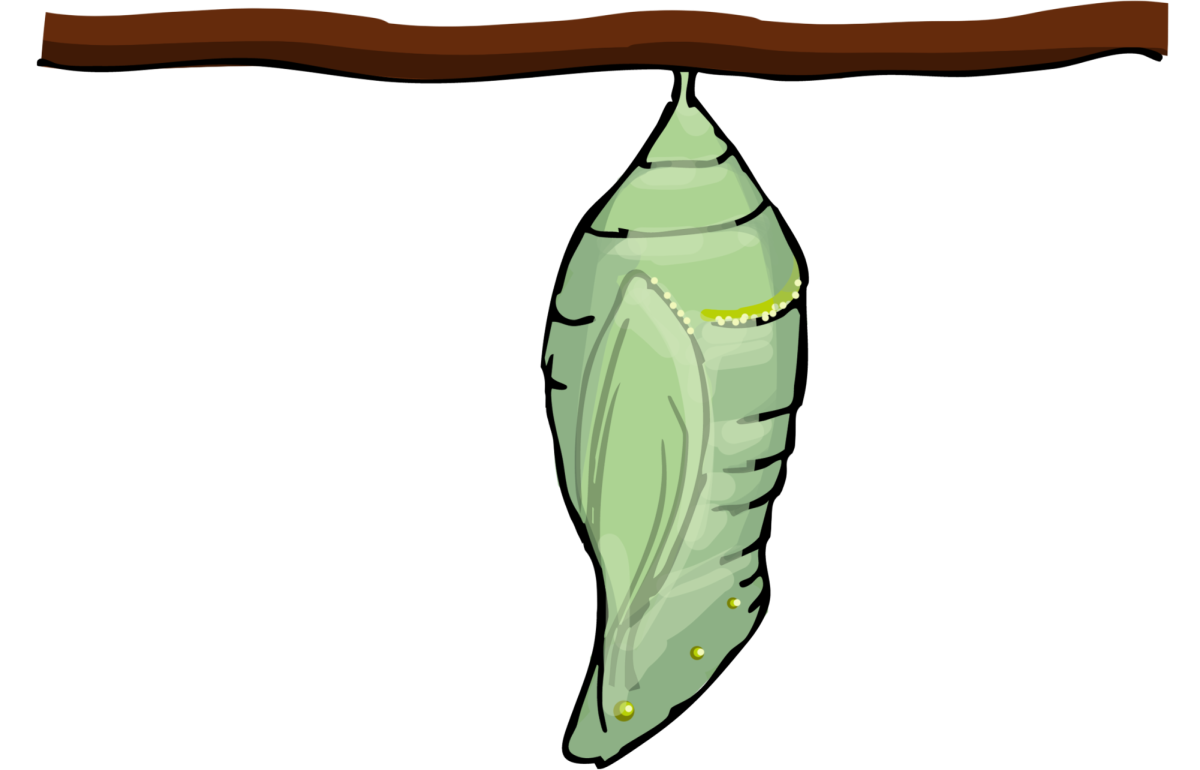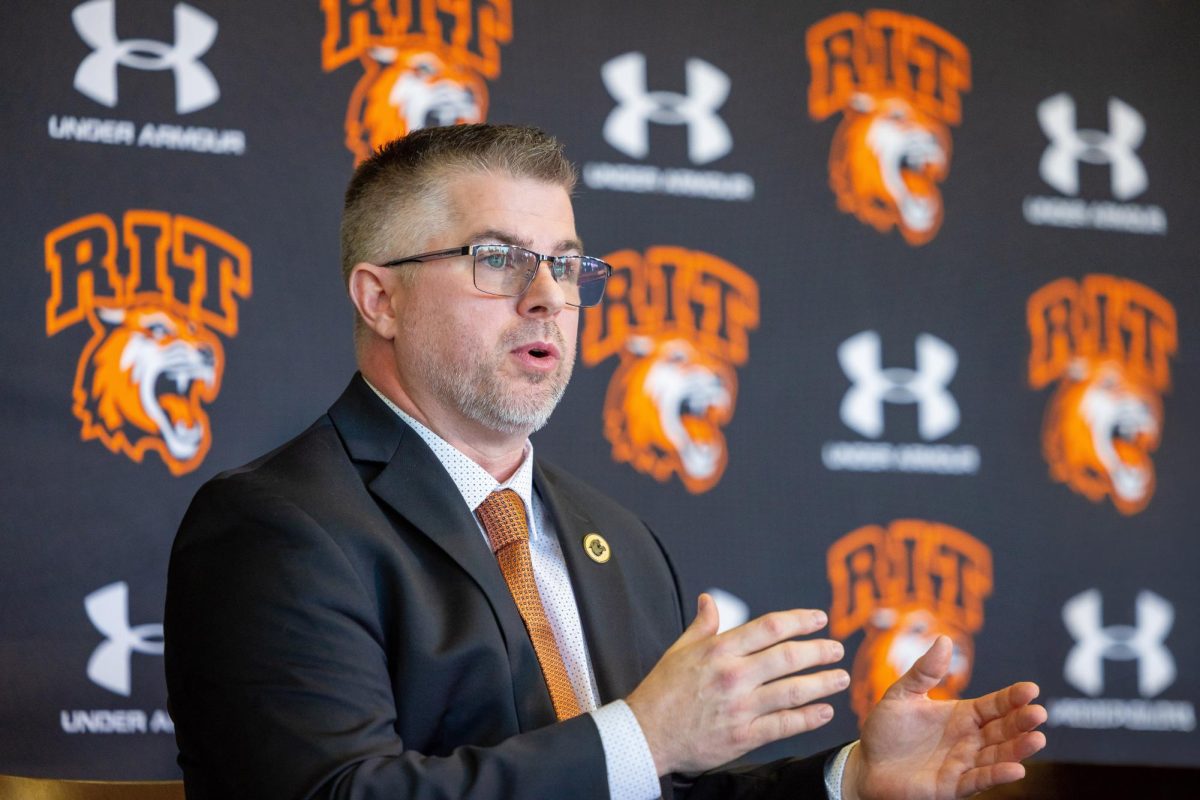Artificial intelligence (AI) has rapidly grown over the past few years; 86% of students use AI tools in studying, according to a 2024 Digital Education Council survey involving university students from 16 countries. RIT has developed an AI Hub to oversee and support its deployment on campus. The AI Hub was created through the AI Task Force that the provost launched on Sept. 1, 2024. The goal was to explore AI’s use in three spheres: the classroom, independent learning and research. Christopher J. Collison, the director of the AI Hub and the Jane King Harris Endowed Professor in the College of Science, outlined the hub’s long-term objectives.
“We want to use AI responsibly, recognizing that it’s here to stay and the question is how we use it most effectively for us humans … and still have a really rich life full of experiences. That’s my philosophy overall,” Collison said.
Collison oversees AI research groups within the hub, including one developing a tutor bot to enhance student learning. This will be a free, open-source tool that Collison hopes will eventually replace expensive textbooks. The bot will be available 24/7, providing support to students outside of business hours. AI aiding in homework, according to Collison, is far more impactful than its use in the classroom.
As director, Collison also represents the faculty and staff who intend to use AI. He is working with various colleges at RIT to improve media literacy and promote responsible use. In March, Collison visited the College of Business to teach faculty how to make the most out of AI tools.
The AI Hub is also helping students, connecting with the AI Club on campus. The club fosters an environment where anyone — from AI enthusiasts to students looking to do research — can join. When members of the club needed more faculty advisors and a platform to showcase their skills, the hub brought faculty to whom the students could talk, providing a crucial connection.
The Applications of AI on Campus
AI is expected to play an increasing role in cybersecurity, particularly in distinguishing real videos and images from fake ones. AI, Collison explained, can identify changes in your face that are associated with your heart beating and use that to verify an image’s authenticity. It also recognizes odd color changes that the human eye would miss in a video. This process will be crucial for identifying fake and misleading videos.
Collison expressed his belief that quantum computing, which uses properties of quantum mechanics to solve problems that are beyond the reach of current computers, is the future of AI 10 years down the road.
“There’s a lot of foundational research on those enabling hardware ideas,” Collison noted.
Addressing the Ethical Issues of AI
The AI Hub wants to spread awareness about the ethics and environmental issues that surround AI. Collison shared his stance on the issue stating, “My stance as director of the AI Hub is that ethical AI use begins with personal responsibility. AI is a tool that should enhance, but not replace, critical thinking.”
He also mentioned how AI was trained using online sources that are full of biases, which makes AI inherently biased. Since AI is constantly being fed new information, students should be conscious of how they conduct themselves and must set high standards. The hub aims to promote ethical and sustainable use of AI.
“The AI Hub seeks to foster awareness and responsible AI practices. By doing this, we empower individuals and institutions to make ethical, sustainable decisions that benefit both humanity and the planet.”
What Lies Ahead?
AI can play an important role in data management, helping optimize business operations by determining what to order and identifying items in high demand. AI can also help in planning activities on campus, whether it is figuring out the best time to plan an event or even generating event ideas.
“We tinker with things, and we learn how to use them, and then we transfer that knowledge that we’ve got from early adoption. We turn that into something that becomes a real solution, an application,” Collison said, stressing the importance of being early adopters of AI on campus.
Collison anticipates that RIT will become better at determining which tools are best suited for specific products. He hopes that the AI Hub will become a makerspace on campus where more students can get involved in projects. This foundry will teach students how to build tools so that their talent can be recognized across the university.






